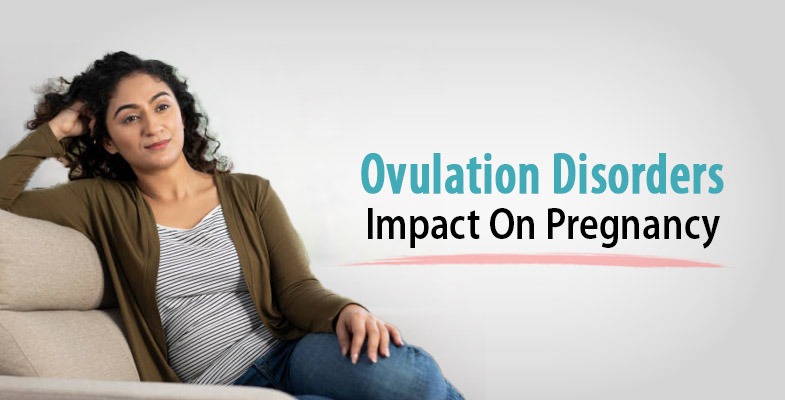
Infertility, or failure to conceive, is a problem that a growing number of couples are having to live with today. The reasons for this can be varied, some due to medical or genetic factors, some age-related, and some due to lifestyle factors like smoking, stress and obesity. When a couple is unable to conceive naturally, and there is no significant medical history that may point towards a cause, the first areas to look at usually are ‘problems with production’ – that is ovulation in a woman and sperm production in a man. Let us try to understand what is ovulation and the role it plays in fertility of a woman.
What is Ovulation?
It is the process where a mature egg is released from the ovaries and moves down the fallopian tube. It stays here for 12 to 24 hours. This is the window when it can be fertilized by sperm. Post sexual intercourse, sperm can live inside the female reproductive tract for about 5 days.
The most common cause of female infertility in often due to an ovulation disorder.
What is an ovulation disorders?
Infrequent ovulation, or no ovulation is termed as an ovulation disorder. This can be caused due to problems with the regulation of reproductive hormones or problems in the ovary.
Some common causes are:
Polycystic ovary Syndrome (PCOS): This is a condition that causes hormonal imbalance and is usually associated with insulin resistance and obesity. PCOS has been seen to be a leading cause of infertility.
Hypothalamic dysfunction: Follicle stimulating hormone (FSH) and Luteinizing hormone (LH), produced by the Pituitary Gland, are responsible for stimulating ovulation every month. Excess stress (both physical and mental), low body weight or a sudden weight gain or loss can cause an imbalance in the normal production of these hormones. This, in turn, can affect ovulation.
Primary ovarian insufficiency, also known as ‘Premature ovarian failure’, could be due to an autoimmune issue or premature loss of eggs from the ovary. This may be due to genetic condition or a fallout of a medical therapy (chemotherapy). In such cases the ovary no longer produces eggs and oestrogen levels are lowered before the age of 40.
Too much prolactin: Hyperprolactinemia is a condition where the pituitary glands produce too much prolactin, which causes the production of oestrogen to reduce, thus causing infertility. This condition can be a fallout of taking medications for some other condition.
How can an ovulation disorder be diagnosed?
If you are unable to conceive after trying naturally over a prolonged period, a visit to a fertility specialist is recommended. The doctor may suggest the following to see whether you have an ovulation problem.
- An over-the-counter test kit to test whether your LH hormone production is as it should be
- Blood test to check progesterone and prolactin levels
- Ovarian reserve testing: To determine the quantity and quality of eggs available for ovulation in your ovary. Women above the age of 35 are more likely to have a depleted quantity of eggs.
- Hormone testing to check levels of ovulatory hormones as well as thyroid and pituitary hormones that control the reproductive process.
- In rare instances laparoscopy or genetic testing may be required to detect abnormalities
How are ovulation disorders treated?
Treatment largely depends on the cause. Medications are usually the first option of treatment. Fertility drugs are prescribed to regulate and stimulate ovulation. These drugs do the work of the normal – LH and FSH – hormones and help in inducing ovulation. They may also be used to increase the number of eggs produced and for improving the quality, in women who may have inadequate ovulation.
Are there any risks in taking fertility drugs?
Oral medications usually carry no risk. Injectables may have a risk of inducing multiple pregnancy or Ovarian hyperstimulation syndrome (OHS), but the risk is low. The results are usually positive.
The role of assisted reproduction
In women with ovulation disorders, if fertility drugs alone are unable to produce the desired result, In-vitro fertilization (IVF) is a recommended treatment that can help a couple in getting pregnant. Post stimulating ovulation with the help of drugs, matured eggs are extracted from the ovary and fertilized in a petri dish in the laboratory with sperm donated by the male partner. The fertilized egg is then implanted in the uterus to induce pregnancy.


